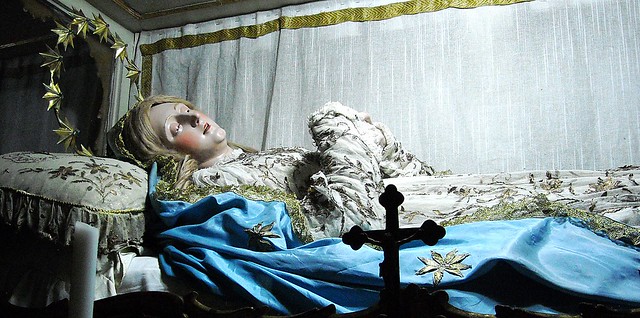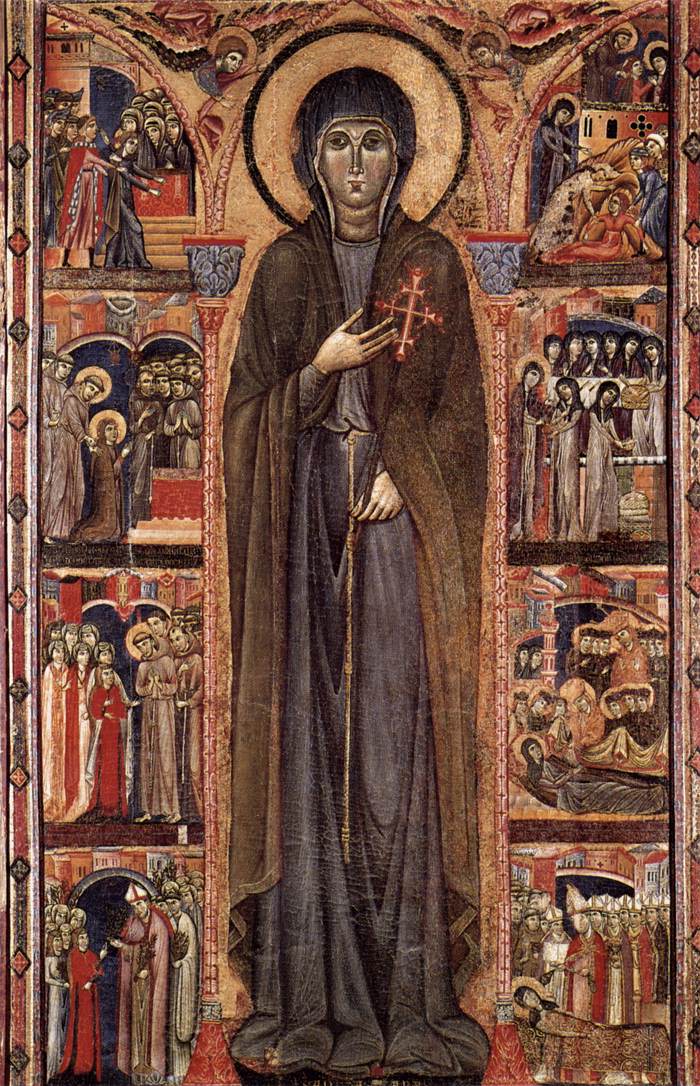
I have been at a major church three times recently for some pretty important occasions, and each time only women read, and every time the female 'music minister' sat enthroned above con-celebrating clergy as some sort of demi-bishop signalling to the people to turn their attention from the altar to her and join in the music, even when the celebrant sang things that would of themselves demand people participation, like "The Lord be with you". No, I didn't check, there might have been very good reasons for the exclusion of men from lay-ministerial positions but the fact it happened on three successive occasions just seemed to be making a point. Just so no-one can question my feminist credentials I only tend to use the Roman Canon and I always include those women at the end of the last list, chauvinists often just use EPII/III/IV, which only mention Our Lady. I don't know if this is what people mean when they speak of feminisation of the Church, actually I think it might go deeper.
Looking around my own parish I see a lot of men who want to be manly but don't actually know how to carry it off, the problem is mainly one of society, and the Church reflects society. However the Church does have the answers, as I said to one young man, after he had attended a friends raucous 'Gay Pride' party a few years ago and fled, 'If you want to know want to know what manly love is like look at the crucifix'. Jesus is always the answer, though we might not be yet be able to form the question.

Apart from sexual addiction or confusion misplaced manliness can often result in men acting out a caricature of what it means to be man, getting drunk, taking drugs, being 'hard', using or misusing women, being a bad a father, being incapable of commitment, even holding down a job. A couple of generations ago the majority of boys left full-time education at 15 or 16, and unless they joined the forces remained at home until they married in their 20's, girls followed the same course, maybe marrying a few years younger. Until the sexual revolution, if you were a man then you were also a father, responsible for protecting and supporting your own family. There has been plenty of talk about the effects of contraception on women, not much on the effects on men. I would suggest one of its effects, is that it makes men immature and afraid of facing responsibility.

In practice men have a hard time of it, loneliness and the lack of belonging seems to be part of the condition of men. Apart from conception they have no necessary part in contemporary family life. Tea at the Trianon links to a post by
Mgr Pope who in turn cites an American survey on
Helping Priests Become More Effective in Evangelizing Men.
Alienation is part of modern manhood, yet the Church should not set about alienating man. Christianity like Islam or Judaism is supposed to be a manly religion, at its heart is not only that God became Man - one with us, but in his becoming Man he also became a man, with a genealogy, a family, a name and even a trade, this very particular man was the very icon of God.
It has always been heresy, and it is on the rise today, it is to 'de-Incarnate' the Incarnate Word. We find this in the attitude that seems to say, "Though Jesus in the Gospel says, 'A man who divorces his wife and marries another commits adultery ... ', but the Eternal Word of God says ...", of course what is given as the Eternal Word is invariably Fr A, or Professor B, or even Cdl C. The same can be done with any doctrine: judgement, sin, baptism, the Eucharist, etc.
One of the constants in any revitalisation of the Church has always been the return to the Incarnation, the person of Jesus, born of the Virgin Mary, therefore a return scripture, to the Gospels. What always accompanies this is a return to the fraternity of Jesus and his disciples, whether it is Augustine or Benedict, Basil, Norbert, Bernard, Francis, Dominic, Ignatius, Neri, Bosco or any of the other great Catholic evangelists, they gathered brothers to live out the Gospel, this seems to be basic to evangelisation, it is what Jesus did. The faith of the Incarnate God cannot be separated from 'brotherly love', and it has always been expressed in gathering men together, to deepen their relationship with Christ.
Whether now we should speak about gathering men and women together, I don't know, that is certainly what seems to be the trend in the West/North. Maybe I am a misogynist or maybe the key to evangelisation is evangelising men, this is what Islam does, this is what Jesus did, this what Copts decided to do in their great renewal under Pope Shenouda.

Certainly there seems to be a need to form men in the Gospel, and men today need Christ's healing, and men feel alienated from the Church. At the back of my mind is an old adage: evangelise a mother, and she will bring with her her young children, evangelise a father and he will bring his wife and his sons and daughters and they will remain faithful.
As the Church teaches the 'compatibility' but also the difference of men and women to not explore that and to take it into account in our pastoral strategy and teaching seems to be folly, it is after all that that this difference is not just about priesthood but also leadership, and Christological iconography.









